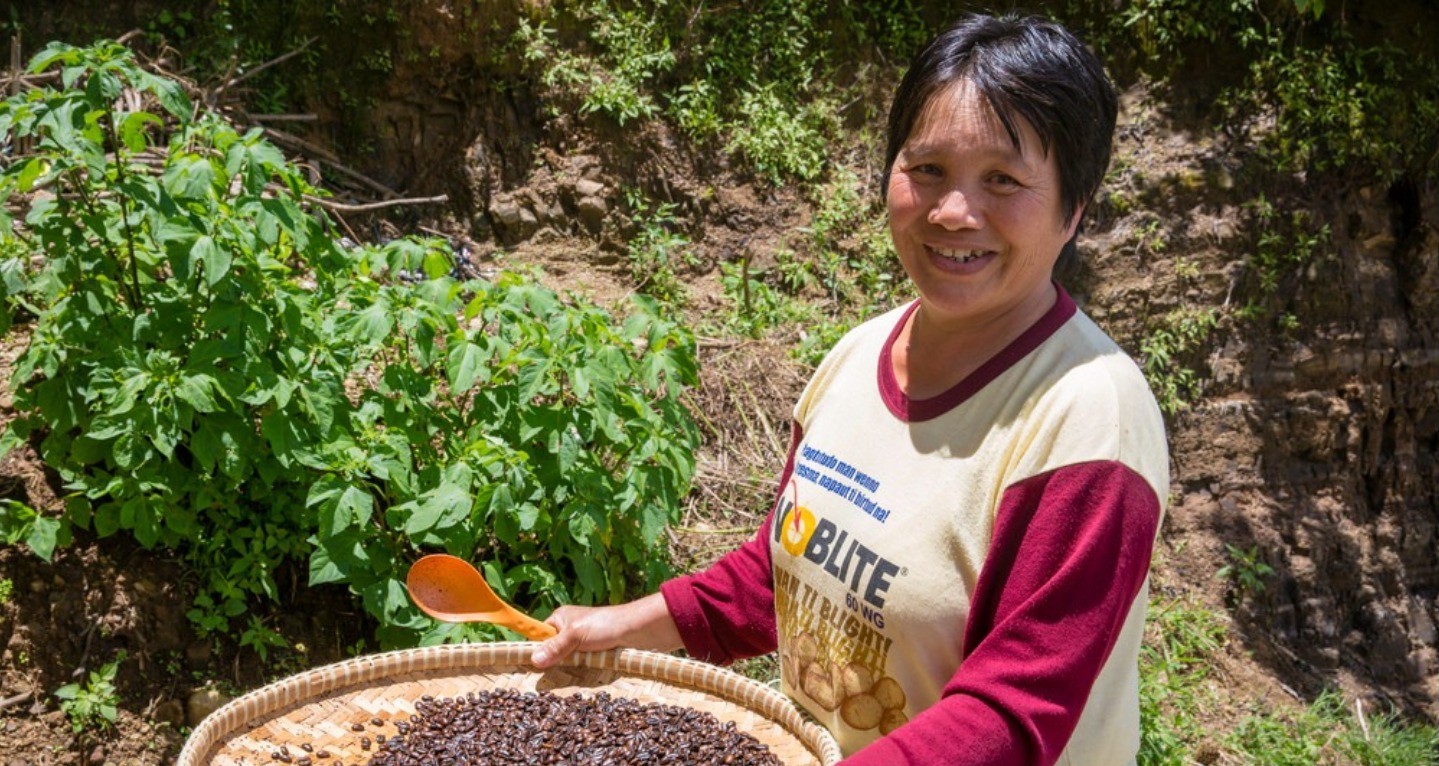Mainstreaming agroecology in the Asia-Pacific region
IFAD Asset Request Portlet
Asset Publisher
Mainstreaming agroecology in the Asia-Pacific region
By Nigel Brett

Agroecology is a holistic approach that integrates elements of ecology, economy, and society within a food system. This approach can support small-scale producers in a variety of ways: it can help increase their capacities for resilience, reduce costs and dependency on external inputs, and improve access to nutritious and safe food and markets. Their well-being, especially in terms of empowerment and social inclusion, is also a major focus.
Agroecology is therefore increasingly relevant to IFAD’s efforts to deliver environmentally, socially and economically sustainable interventions. For this reason, agroecological practices are a component in over half of IFAD’s current portfolio. More specifically, a recent study of over 200 IFAD-supported projects found a clear positive correlation between the promotion of agroecological approaches and the incorporation of nutrition-, climate-, and youth-focused activities, with additional strong support for gender equity and indigenous peoples’ concerns. For the Asia-Pacific region in particular, about two thirds of the projects sampled incorporated these practices.
In fact, IFAD has a long tradition of supporting agroecology practices throughout Asia-Pacific, especially the Himalayas region. This is done mainly through integrated pest management and organic practices, water management and soil erosion control, integrated soil fertility management, rainwater harvesting and micro-irrigation, community governance and management of shared natural resources, and the diversification and integration of various crops and animals for improved resilience, nutrition and incomes. Other key aspects include territorial approaches, support for establishing land tenure systems, support for inclusive value chains, and improved access to markets.
Agroecology in IFAD’s Asia-Pacific projects
In India, for example, the FOCUS project combines the integration of agroforestry systems and support for improved tenure security, thus encouraging participating farmers to further invest in these systems. Many farmers in the project area have traditionally practiced a shifting cultivation system known as jhum, which has become unsustainable. FOCUS aims to provide farmers with more productive and sustainable jhum cultivation practices, with the goal of reducing deforestation and producing ecologically balanced systems that can enhance climate change resilience and increase incomes. The project also assists jhumia households with adopting alternative farming methods and supports improved market access and value chain development. A total of 201,500 households directly benefit from the project, the majority of which belong to tribal villages.
Nepal’s ASHA project is a clear demonstration of how innovative, successful agroecology-based model permaculture farms can be beneficial to the broader community. Permaculture enables people to establish productive environments that provide food, energy, shelter, material and non-material needs, as well as the social and economic infrastructures to support them. It is proving very effective for sustainably managing natural resources and reducing the purchase of inputs. ASHA has established a total of six demonstration farms, one in each project district, supporting 343 lead farmers who have in turn extended their services to a total of 17,387 farmers. These model farms serve as a learning platform for other interested farmers and help build a knowledge base for potential livelihood activities specific to each agroecological zone.
Bhutan’s CARLEP project has established permaculture farming as well, and is bringing fallow lands back into production using both permaculture and regenerative agriculture models. It even brought local farmers to Nepal to train at ASHA’s demonstration farms. It has also formed youth cooperatives as a way to engage young people in the agriculture sector.
The recently completed AMD project in Viet Nam is an excellent example of applied agroecological practices. The project worked with over 15,000 small-scale farmers, including women and ethnic minorities, to strengthen their capacities to cope with changing climate conditions. Through AMD, farmers learned how to more efficiently use natural resources (especially water) and were able to adapt to increasing water salinity by introducing the intercropping of rice, fruits, and vegetables and rotational systems for rice and shrimp. The project also supported farmers’ efforts to improve their soil fertility management practices.
The potential of agroecology for transforming the region’s food systems
IFAD recognizes that agroecological practices have an important role to play in securing sustainable and inclusive food systems. Our current replenishment cycle (IFAD12) is dedicated to pursuing responsible investments in sustainable agricultural practices that leverage the latest science and technology, including agroecology. In addition, our new Private Sector Financing Programme, with its focus on youth and women entrepreneurs, will expand opportunities for these groups to engage with impact investments in agroecology.
Throughout the Asia-Pacific region, growing populations and the increasingly strong effects of climate change are challenging both the capacities of the region’s current food systems and the food security of its rural populations. We expect that agroecology will be key to responding to these challenges. Over the next few years, we will be focusing on the region’s youth as a potential driving force for implementing agroecological practices. In particular, we are interested in helping youth establish off-farm enterprises dedicated to organic agricultural inputs, such as high-quality compost, bio-slurry, and bio-pesticides.
Recently, we have also been working with FAO, BMZ, IFOAM, and India’s National Bank for Agriculture and Rural Development to bring together decision-makers of all kinds (governments, parliamentary bodies, researchers, civil society representatives) to scale up agroecology throughout the Himalayas. Together, we are promoting the Hindu Kush region as a champion in this area.
To achieve SDG 2 (zero hunger) and leave no one behind despite the increasing challenges posed by climate change, IFAD will continue to engage in and call for crucial partnerships like these to spearhead investments in rural development. These efforts will make an enormous contribution in the transition to sustainable food systems benefiting small-scale producers and vulnerable rural communities throughout the region and the developing world.
Learn more about IFAD’s work in Bhutan, India, Nepal, and Viet Nam.
Publication date: 08 September 2021